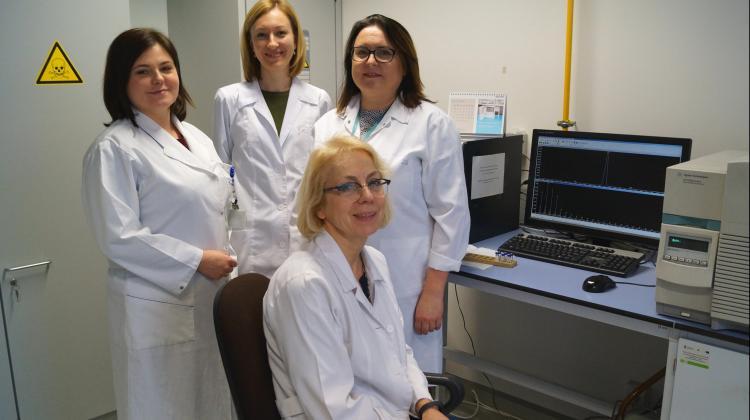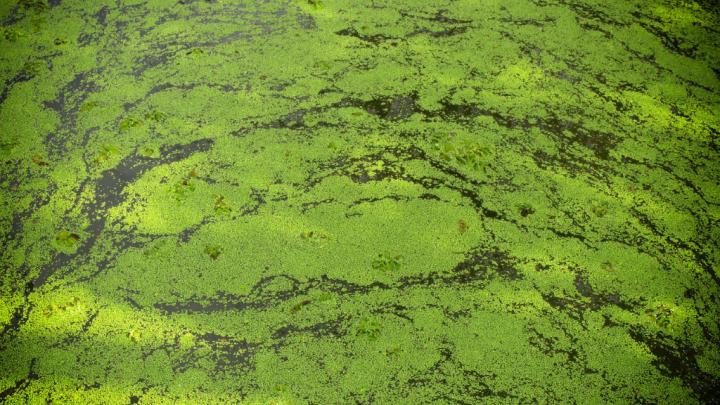Floating Plants to purify Waters from Endocrine Compounds
 Photo: press materials
Photo: press materials
Currently used methods of removal of endocrine compounds, for example bisphenol A (BPA), from wastewater are not good enough, believes Professor Joanna Karpińska from the University of Bialystok. She proposes an ecological solution based on the use of floating plants.
Professor Joanna Karpińska wants to have a close look at EDCs (endocrine disrupting compounds), including parabens and benzophenones used in cosmetics, or naproxen and oestrogen present in many medicines, according to the information sent by the university spokeswoman Katarzyna Dziedzik.
EDCs accumulate in the food chain; in each subsequent link in the chain their concentrations are higher and so humans, for example as a result of eating fish, receive considerable doses.
The researcher points out that currently used methods of wastewater treatment using activated sludge technologies do not completely remove endocrine active compounds, and it is suspected that chronic human exposure to these compounds is among the causes of the currently observed epidemic of obesity, diabetes and other civilization diseases.
`For example, in the case of bisphenol A, a compound used in the production of plastics, the purification efficiency can be up to 99 percent. Unfortunately, the 1 percent getting into rivers or water reservoirs can cause huge damage to the environment, because although the EDC concentrations are low, the contact of living organisms with them is practically constant. The presence of low, but constant concentrations of organic pollutants does not cause acute poisoning, the symptoms of which are easy to observe, but has a long-term effect, and the effect is disrupted hormonal balance of the aquatic fauna. The results include feminisation of frogs or fish, lower reproduction rates of some species or higher incidence of birth defects`, explains Professor Joanna Karpińska from the Faculty of Chemistry of the University of Bialystok.
In her opinion, the efficiency of endocrine compounds removal from wastewater can be increased by additional cleaning through chemical processes or adsorption on activated carbon. This, however, requires additional investment in new installations; the disposal of thus generated new waste is also a problem.
The researcher is looking for more economical and environmentally friendly methods. According to her, there is a chance of using floating plants such as rootless duckweed, water fern, multi- common duckmeat and lesser duckweed.
Professor Karpińska reminds that phytoremediation, i.e. the use of aquatic plants for water and wastewater treatment, has been used for a long time, but so far there has been no research on the effectiveness of floating plants in removing endocrine compounds.
`Together with my team, I want to investigate not only whether plants will effectively remove EDCs, but also how the contact with these compounds will affect their development and life processes: biomass growth or photosynthetic dye levels. One of the stages of research will be to determine the mechanism for removing impurities by plants - whether endocrine compounds will be broken down during their metabolic processes, or accumulate in their tissues, which would be a potential problem, because after the treatment stage has been completed it will not be possible to use the obtained biomass in agriculture, for example for feeding animals`, says Professor Karpińska.
According to the university, the project `The assessment of selected floating plants as effective and pro-ecological agents in the removal of endocrine compounds from water and wastewater - kinetic and biodegradation studies` will continue until 2022. It is co-financed by the National Science Centre with an amount of nearly 868 thousand zlotys.
The research team members include: Dr. Urszula Kotowska, Dr. Justyna Kapelewska and Róża Sawczuk from the Faculty of Chemistry of the University of Bialystok. Dr. Alicja Piotrowska-Niczyporuk from the Faculty of Biology will also participate in the implementation of the grant.
PAP - Science in Poland
akp/ ekr/ kap/
tr. RL
Przed dodaniem komentarza prosimy o zapoznanie z Regulaminem forum serwisu Nauka w Polsce.
















